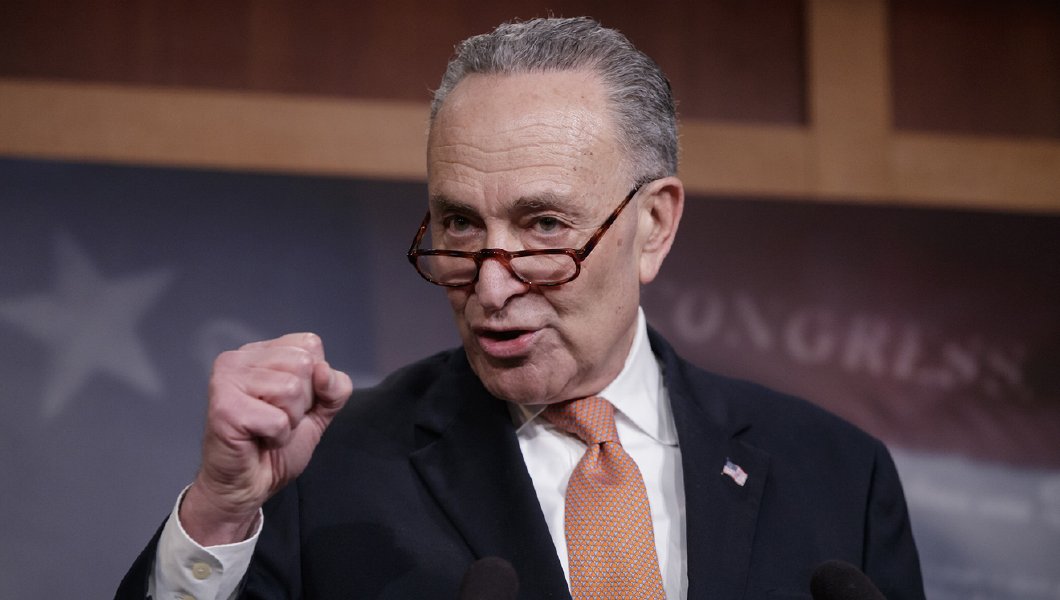The response to the recent federal government shutdown shows that at times, the Democrats can be their own worst enemy.
Much of the coverage surrounding the vote to end the government shutdown has centred around how the Democrats, under Senate minority leader Chuck Schumer, have ‘lost their nerve’ and ended up backing down for very little in return.
The Democrats were criticised by political opponents in Congress and the media for causing the government shutdown by opposing any legislation to prevent it without specific protection for ‘Dreamers’, young undocumented immigrants facing the threat of deportation under the Trump administration. Sensing public opinion was turning against them, having been portrayed as prioritising illegal immigrants over the uninsured American children the original bill was pledging to fund insurance for, the Democratic leadership opted to back down in exchange for a somewhat vague commitment from Republican majority leader Mitch McConnell that legislation on Dreamers will be put forward next month.

The Democrats’ leader in the Senate, Chuck Schumer (Source: AP)
A disappointing outcome for the party as a whole, to be sure. But a closer look at the Democrats’ response to the issue belies the ideological faultlines running through the party. The only five Democrats (Joe Manchin, Heidi Heitkamp, Joe Donnelly, Claire McCaskill and newly elected Doug Jones) to back the original bill that was defeated by the party as a whole are generally on the right of the party, and all represent Republican-leaning states. Four of these senators are up for re-election at the mid-terms later this year, something they may have had one eye on while opting to side with Trump and the Republicans on this issue.
On the other side, there is an increasingly prominent and vocal left wing of the party. A list of the senators who defied their party leadership to vote against re-opening the government on Moday reads like a ‘Who’s Who’ of potential 2020 presidential candidates. Bernie Sanders, Elizabeth Warren, Kamala Harris and Cory Booker – all among the most influential senatorial Democrats since Trump’s election victory – were among the rebels. Taking such a stand will surely have endeared them to majority of Democratic supporters, who were angered by Schumer’s decision to back down on the shutdown. Continuing to please this group, particularly while they are being disappointed by the rest of the party, can only help the more left-leaning Democrats in their long struggle to win their party’s nomination in around two years’ time.
The Senate must act to protect our Dreamers from @realDonaldTrump's racist, anti-immigrant agenda. #DreamActNow pic.twitter.com/IQaao6Gspr
— Elizabeth Warren (@SenWarren) January 17, 2018
Essentially, this issue comes down to the opening skirmishes in a battle for the soul of the party, one fought on both ideological and pragmatic grounds. The two extremes of the party clearly differed on their views on how to approach the shutdown, disagreeing on whether it was worth taking a step back on protecting Dreamers for the sake of restoring the government and enabling funding in other areas. Yet also it speaks to their views on the best way to challenge Trump in practice. Moderates view their best chance of winning over undecided voters in conservative regions, particularly those dissatisfied with Trump’s leadership, as offering a moderate alternative to their competition. Those further left, however, may point to Hillary Clinton’s failure in 2016 as proof that the adage that whoever holds the centre ground wins elections no longer applies. For them, the best way to take on non-establishment figures like Trump is with ‘outsiders’ of their own who offer a break with the past. If, and how, the Democrats are able to reconcile these profound differences ahead of crucial elections in 2018 and 2020 may prove essential to the ultimate direction the country takes.


